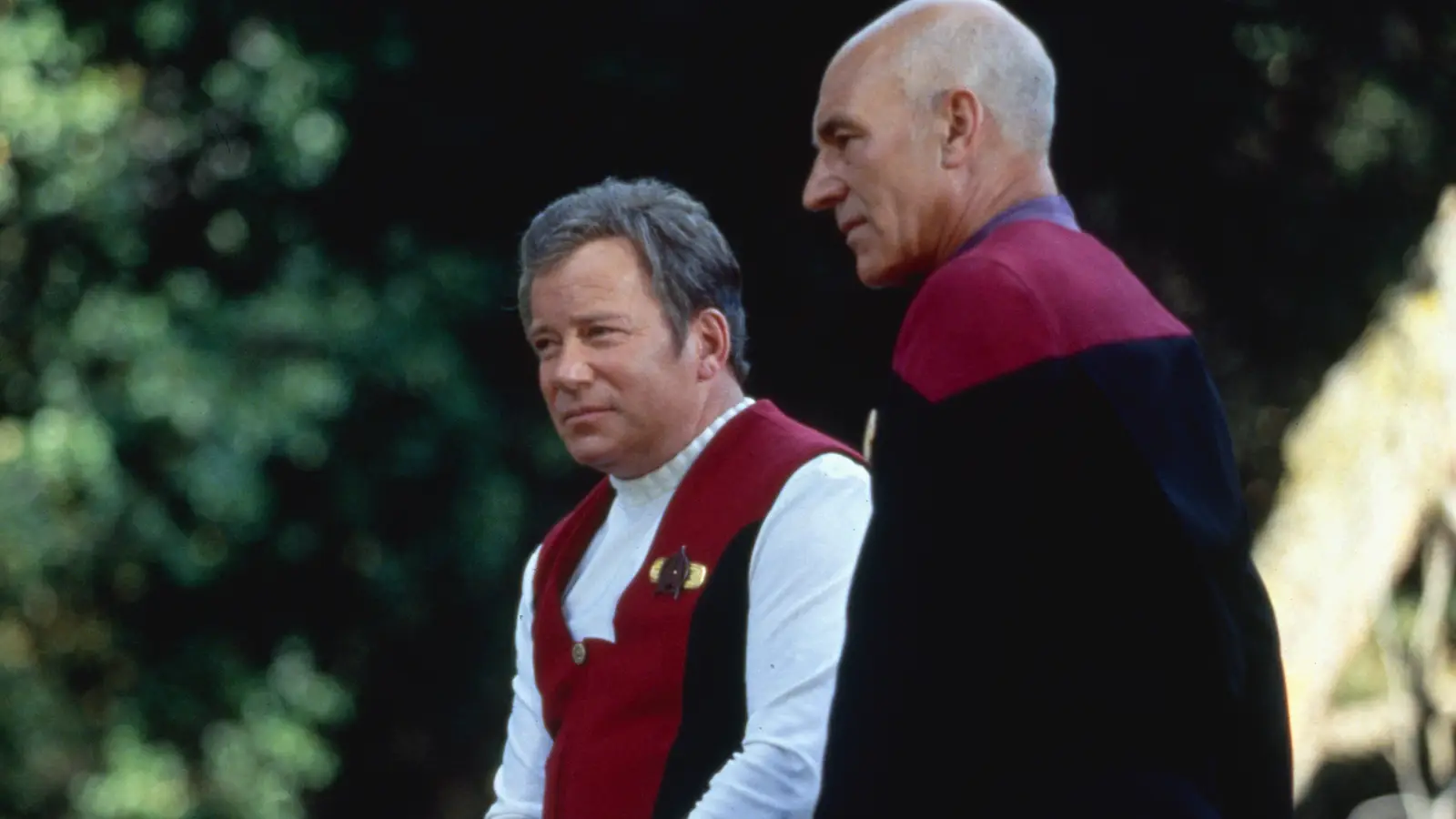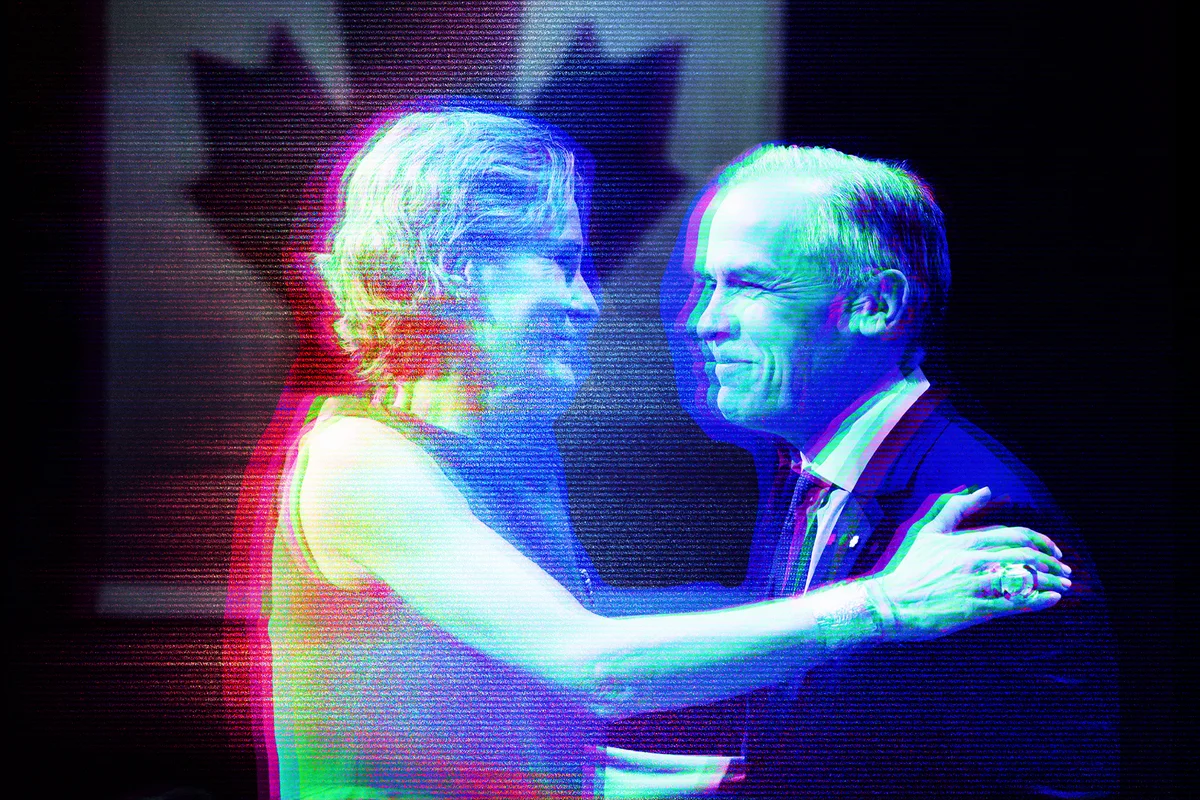
No debate in the history of science fiction has been as fierce as Star Trek’s The Original Series vs. The Next Generation argument. Fans have spent decades analyzing, comparing, and championing each side, but when it comes to deciding the best Star Trek show, it’s a battle of icons. Both are cultural milestones, but only one can truly claim the crown.
Of all the shows to follow on from the groundbreaking 1966-1969 run of Star Trek, only The Next Generation ever reached the same level of universal admiration. Jean-Luc Picard (Patrick Stewart) emerged as a natural successor to James T. Kirk (William Shatner), despite their leadership styles being galaxies apart. In tone and approach, the two series often feel like opposites, yet each carved a permanent place in Trek history.
It’s easy to see why the debate continues to rage on decades after both shows concluded. The Next Generation may have built upon what The Original Series started, and even surpassed it in some ways. Yet the trailblazing innovation of The Original Series cannot be understated. Both series shaped everything that followed, but only one deserves the title of the best Star Trek show.
The Case For The Original Series As The Greatest Star Trek TV Show
TOS Laid The Foundation Every Other Trek Show Stands On
There’s no denying Star Trek: The Original Series is where everything began. Airing from 1966 to 1969, it redefined what televised science fiction could be. At a time when most TV sci-fi leaned on pulp adventure, TOS elevated the genre with thought-provoking allegories, exploring social issues under the guise of interstellar exploration. For many fans, that pioneering spirit makes it the best Star Trek show.
Its characters remain the backbone of the franchise. James T. Kirk, Spock (Leonard Nimoy), and Leonard “Bones” McCoy (DeForest Kelley) created a legendary trio that still influences Trek dynamics today. The rapport among them shaped how future crews would interact. While every Star Trek series since has experimented with new characters, they almost always find themselves compared to this original trinity.
The Original Series was also groundbreaking in its casting and storytelling. Uhura (Nichelle Nichols) stood as one of the first prominent Black female characters on American television. Sulu (George Takei) and Chekov (Walter Koenig) gave the bridge crew an international dimension, reflecting Gene Roddenberry’s utopian vision of humanity’s future. In the 1960s, that inclusiveness was nothing short of revolutionary.
TOS developed a passionate fandom that not only saved the franchise but cemented it as a cultural juggernaut.
Even though its three-season run was cut short, TOS developed a passionate fandom that not only saved the franchise but cemented it as a cultural juggernaut. Its syndication success in the 1970s made Star Trek a household name, paving the way for movies, spinoffs, and eventually The Next Generation. None of it would exist without the original.
Star Trek: The Original Series episodes like “The City on the Edge of Forever” and “Balance of Terror” remain among the finest examples of sci-fi television ever made. Their moral dilemmas, human drama, and speculative brilliance showcase how ambitious TOS could be, even on a modest budget. These episodes prove why the show still resonates almost 60 years later.
At its core, The Original Series offered audiences a bold, optimistic look at humanity’s potential. That groundbreaking optimism, combined with iconic characters and stories, is why many still argue it’s the best Star Trek show of them all.
The Case For The Next Generation As The Greatest Star Trek TV Show
The Next Generation Modernized Star Trek And Redefined Its Legacy
When Star Trek: The Next Generation premiered in 1987, it had massive shoes to fill. Instead of trying to replicate TOS, it reinvented Star Trek for a new era. The show introduced a more sophisticated tone, with episodes that often explored moral ambiguity, diplomacy, and the complexities of interstellar politics. For many, this maturity is what makes TNG the best Star Trek show.
Jean-Luc Picard immediately set a different tone than the swash-buckling space-adventurer that was Kirk. Picard’s leadership was measured, intellectual, and rooted in diplomacy, aligning closely with the ideals of the Federation. This shift signaled that TNG was not about reckless heroics but thoughtful exploration, giving it a more realistic and enduring appeal.
TNG also built narrative depth. While TOS thrived on standalone episodes, The Next Generation embraced recurring arcs, like the rise of the Borg. Introduced in “Q Who,” the Borg became one of the most terrifying and fascinating adversaries in science fiction, culminating in unforgettable storylines like “The Best of Both Worlds.” These arcs added tension and stakes rarely seen in TOS.
By balancing episodic adventures with serialized storytelling, TNG redefined what Star Trek could be.
The cast of TNG expanded the Star Trek family with unforgettable characters. Data (Brent Spiner) gave the franchise one of its most compelling explorations of humanity. Worf (Michael Dorn) deepened Klingon culture in ways TOS never had time to attempt. Characters like Geordi La Forge (LeVar Burton) and Beverly Crusher (Gates McFadden) added nuance and heart, giving the crew a grounded humanity.
The production values of TNG also surpassed its predecessor. Improved effects, richer set designs, and more ambitious visual storytelling elevated the sense of immersion. It looked and felt like the future, free from the camp associations that sometimes dogged TOS.
By balancing episodic adventures with serialized storytelling, TNG redefined what Star Trek could be. Its blend of intellectual themes, memorable characters, and long-form arcs proved the franchise wasn’t just surviving – it was thriving. That’s why so many consider The Next Generation the best Star Trek show.
Why Star Trek: The Next Generation Is The Greatest Star Trek TV Show Of All Time
The Next Generation Represents The Heart And Future Of Star Trek
While The Original Series deserves eternal credit for creating the Star Trek universe, The Next Generation perfected it. It carried Roddenberry’s ideals into a new era with greater clarity, nuance, and ambition. For this reason, TNG is the best Star Trek show, and the one that most fully embodies what the franchise has become.
Kirk is undeniably iconic, but Picard embodies Starfleet’s philosophy more effectively. Where Kirk often relied on instinct and bravado, Picard leaned into diplomacy, reason, and compassion. As the Federation evolved onscreen, it became clear that Picard’s approach was more in line with its utopian ideals, making him a better representation of Star Trek’s future.
TNG also developed Star Trek’s lore with unmatched depth. The Klingons, first introduced as one-dimensional antagonists in TOS, became a richly detailed culture in TNG. Worf’s journey explored Klingon honor, politics, and tradition, transforming them into one of the franchise’s most beloved races. This cultural expansion became a model for how Trek could build out alien civilizations.
The storytelling of TNG consistently pushed boundaries. From exploring artificial intelligence through Data’s quest for humanity to tackling moral quandaries like the Prime Directive, its narratives were layered and often profound. Episodes such as “The Measure of a Man” and “Darmok” demonstrated the show’s ability to address contemporary issues through compelling science fiction allegories.
Perhaps most importantly, TNG emphasized Roddenberry’s vision of a utopian future more than TOS ever could. The show didn’t just gesture at diversity and cooperation – it immersed audiences in a world where humanity had transcended conflict, focusing instead on diplomacy, ethics, and exploration. That commitment makes TNG feel more timeless and aspirational.
The production scale of TNG also cannot be overlooked. Its higher budgets allowed for better effects, more ambitious stories, and grander set pieces. The Enterprise-D itself felt like a fully realized community, with its sprawling design making the starship more than just a setting – it was a character in its own right.
While TOS will always hold its place as the origin point, TNG became the definitive template for modern Trek. From Deep Space Nine to Discovery, almost every later series owes more to TNG than to TOS. Its influence is immeasurable, shaping the way audiences and creators alike think about the franchise.
Ultimately, Star Trek: The Next Generation surpasses The Original Series not by replacing it, but by building upon it. It honored its foundation while expanding the universe in ways TOS could never have achieved. That’s why, for all its legendary importance, The Original Series can’t quite match The Next Generation as the best Star Trek show.



